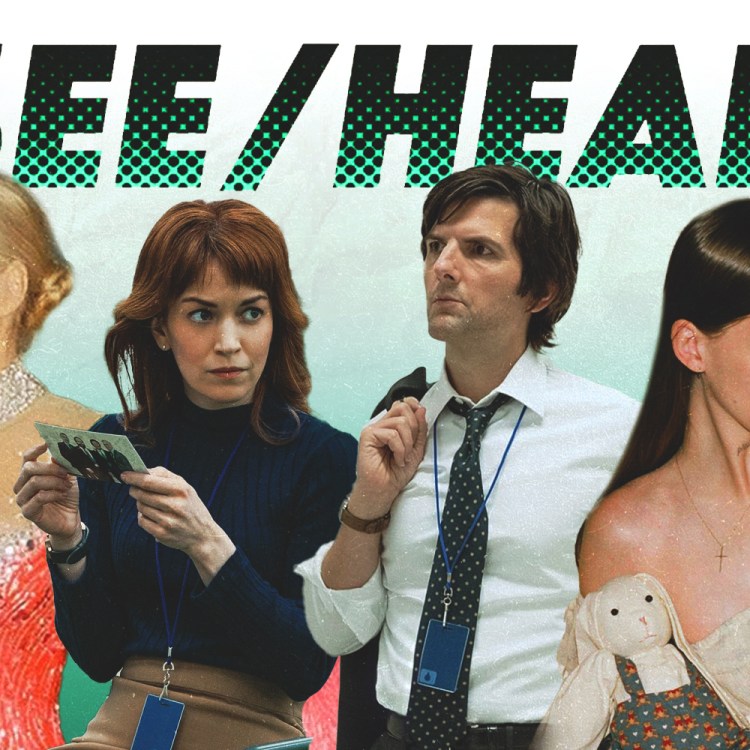
Garage-punk solo artist Ron Gallo is back with his sixth studio album, the excellent and aptly named Foreground Music (out today via Kill Rock Stars), and it features 11 songs that tackle many of the issues brought to light by the COVID-19 pandemic.
Now just a few weeks shy of the pandemic’s three-year anniversary, it’s easy to marvel at how many ways the virus changed us. Some shifts were positive — who doesn’t love having the ability to work from home or grab a to-go cocktail? — but more than anything, COVID exposed the cracks in our foundation. Issues like lack of infrastructure and systemic biases suddenly became impossible to ignore when millions of people were sick, dying or out of work.

One of the industries hit hardest was the music business. Given how vital things like large crowds of people and travel are to its success, it was one of the last to return to pre-pandemic normalcy. But it’s a business of haves and have-nots, and while pop superstars and massive corporations like Live Nation and Ticketmaster were able to weather the storm, working musicians like Gallo who rely on touring for the majority of their income were left to struggle and question whether their passion is still even a viable career path.
“I feel like my brain is just destroyed in terms of really just reevaluating everything,” Gallo tells InsideHook from his home in Philadelphia. “Obviously the pandemic revealed that none of us at a certain level had any semblance of solid ground to stand on. [When] the music itself is being so devalued, what are we without touring? And it made me pretty combative with the industry. Artists are kind of on their own, as usual, to navigate and build and make the whole thing work.”
The album that resulted from that frustration and combativeness is full of fuzzy, uptempo rock songs that any fan of Iggy Pop or Ty Segall will immediately latch onto, but there’s a sense of anxiety that permeates throughout, something Gallo says was fueled by doubts over whether continuing to make music as the world was falling apart was even a worthwhile endeavor.
“All I know is that [the pandemic] made me reevaluate how I want to do things, and I think that there’s a lot more risk involved with everything now,” he explains. “And so for me it’s do less but maybe make it more meaningful, be pretty uncompromising.
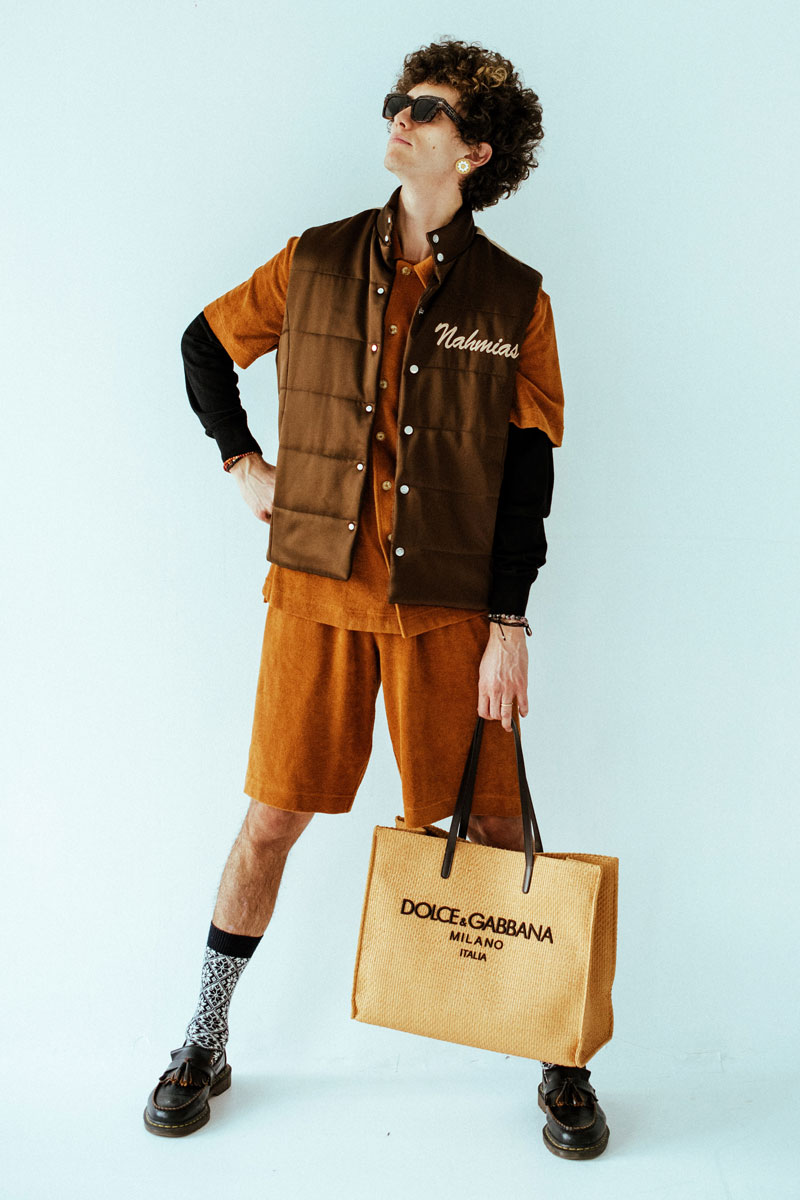
Foreground Music became his raison d’être — more than a record, it was his motivation to keep making music at a time when, he says, it all started feeling pretty pointless, and it started with taking stock of the world around him.
“After the last few years and everything seeming kind of futile, I kind of started by thinking about what justifies even making a record as me in 2022. Why should it matter? And my answer was that I feel like there’s some sort of collective shared experience we’ve all had,” Gallo says. “It seems like there’s a lot of issues that have revealed themselves that maybe have always been there, but people are actually becoming a little bit more open to facing them. And so all of that combined with just my general sense of existential dread and anxiety gave me a very clear path, which is just talk about what is actually happening collectively, personally and just kind of almost take each song to address a different problem that I have with the world.”
– Ron Gallo“If death and taxes and big flames are coming…And if the words are true, I’m gonna dance straight through the gates of heaven in my head.”
Those issues include classism, climate change, racism, right-wing extremism, corporate greed and gentrification. “My neighborhood right now is just like one giant construction zone,” Gallo says. “Just developers coming in and building giant apartment buildings.” Listen carefully, and you’ll even be able to pick out some sounds of construction noise on the album that the mics picked up while he was recording.) Two standout tracks — “Entitled Man” and “Big Truck Energy” — tackle toxic masculinity.
“It just felt like a really important thing to address,” Gallo says. “‘Entitled Man,’ I sort of wrote that one after an old friend of mine was just telling me stories about experiences she had with guys at bars. I was like, ‘You’ve got to be fucking kidding me.’ Somehow I feel it’s even garnered more meaning in recent years, as more things have come out and more things have been exposed. So that was just a super obvious one. And then with ‘Big Truck,’ it’s just, we all know the type. And I wanted to talk about that, but there’s kind of a fine line between beating people over the head, finger-pointing and finding a sneakier way to kind of address what I think are problematic people, but not really in an obvious aggressive way. I’m just telling a story about a thing that happened, and people can listen to it and take what they want from it.”
Of course, he’s not worried about pissing off any of the men he’s writing about. “I sent ‘Big Truck Energy’ to my dad, and he was like, ‘That song made me really uncomfortable,'” he says. “And I was like, ‘Great. It’s going on [the record], it’s perfect.’ Not that it’s directed at him, but I think some of the lines, he could kind of hear certain people hearing it and being kind of ruffled. So I was like, ‘That’s a sign of something that I’m down with.'”
Though Foreground Music confronts a lot of heavy topics, it does so with optimism and humor. On “At Least I’m Dancing,” he makes the most of the hand he’s been dealt, singing, “If death and taxes and big flames are coming/According to some thing I read/And if the words are true/I’m gonna dance straight through the gates of heaven in my head.” Even a song like “Big Truck Energy” makes us laugh at the absurdity of it all with lines like, “You sped out in a toxic black cloud spewing tiny pee-pee energy.” It’s a record that asks us to ponder some big, important questions, but it encourages us to have a good time doing so.
“A part of it’s just kind of in my nature,” Gallo explains. “I don’t take myself as a person very seriously, but I think it’s important to use music as a platform to talk about what’s going on in the world. I mean, I’ve kind of always felt the drive to use it that way. I need to talk about this, but I also am not like some dark, heavy, brooding person. How do I find the balance? And it just naturally results in some sort of humor because it’s kind of everywhere, especially when facing some of the heavier things. If you can find a way to laugh at yourself or at the situation, I feel like you’re kind of understanding it better and it makes it more digestible for people.”

That’s something that has resonated with a lot of people, especially the fans Gallo has had the opportunity to interact with at his shows. Those conversations and experiences are why no matter how frustrating it gets, he could never give up music entirely.
“For me, the most incredible thing, which is sort of dark in a way, is when people come up to you like, ‘Yeah, I was pretty much at the end of my rope. I was gonna kill myself. And then one of your songs just… ‘ People have said things or written me emails to that extent, and to me that is number one, crazy, just to even fathom the impact that something that you make can have on somebody,” he says. “But I find a lot of that stuff happens too. You have these conversations with people, they’re like, ‘Oh, I was going through this and then I heard this and it got me through this.’ And when you hear that, it’s just, nothing else matters. Nothing else about music, industry, career, all that stuff just no longer matters when you realize that the songs can help people, which is what they were designed to do, and is the point that we tend to forget in the machinery of it all.”
Ultimately, Gallo hopes that Foreground Music will encourage people to take stock of their own lives the way it did for him and motivate them to keep pushing.
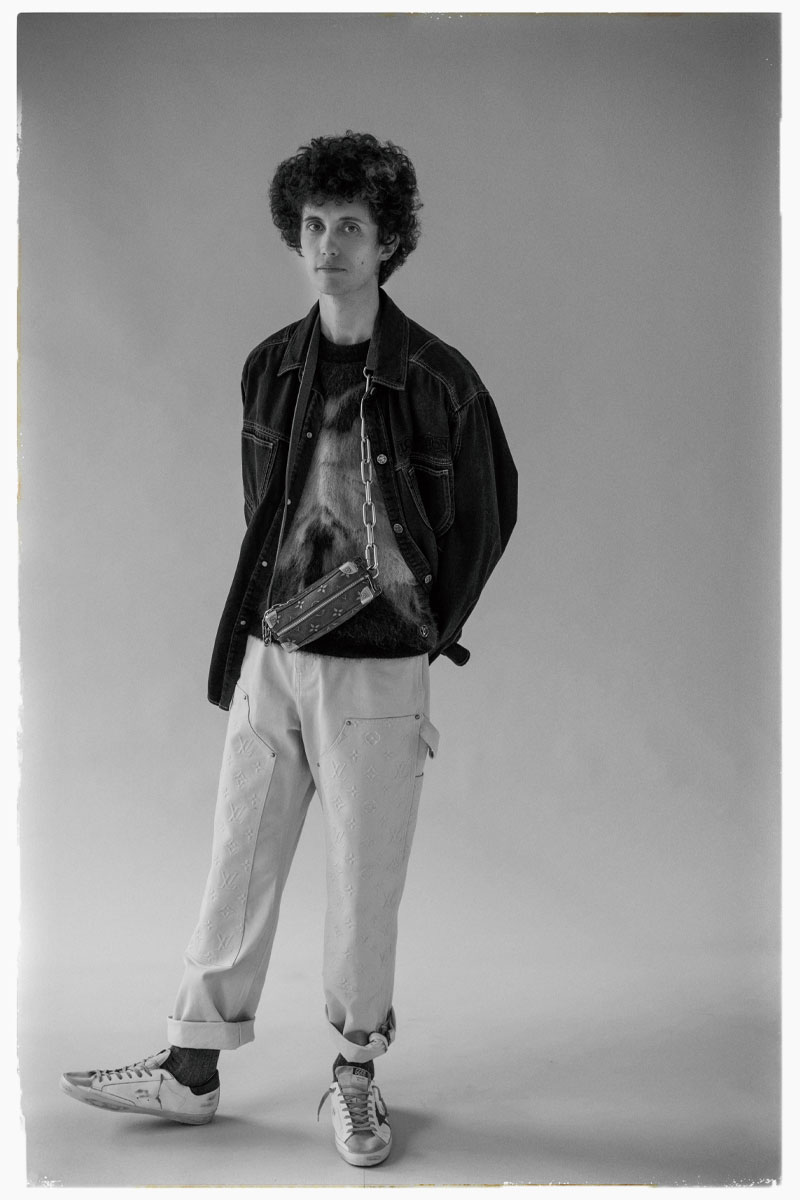
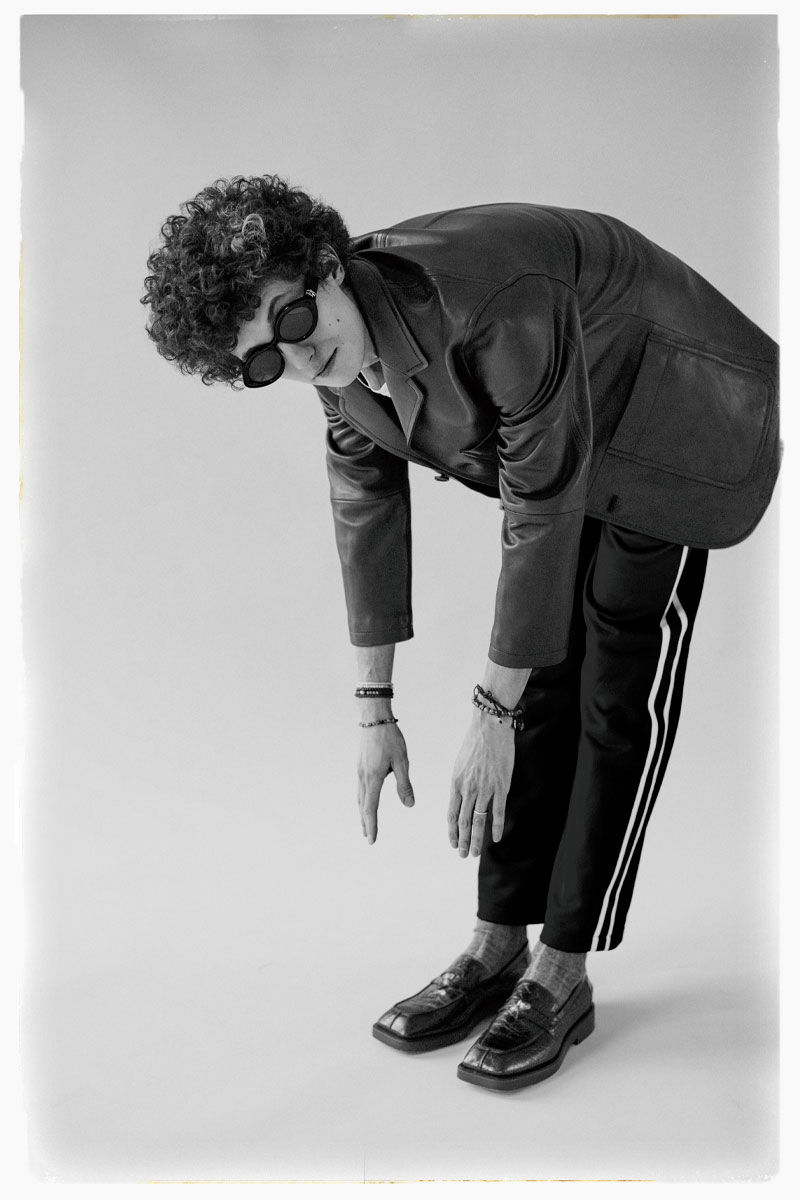
“I guess if somebody can find some sense of empowerment to challenge things that don’t serve them in their life, that would be wonderful,” he says. “I think that’s what this record does for me. It’s like, it’s almost a sense of freedom where like, I’m gonna use songs to just say whatever I am actually feeling about things kind of fearlessly. And if people can bring that into their life in some way, I don’t know whether it’s like quit a job that they hate or get out of a bad relationship or better their situation, that’s cool. Or just making people feel less alone, I guess, in the dread and anxiety that I think is pretty inherent with being alive right now. Some form of empowerment or consolation, I guess. It’s alright to not be alright. And it’s also alright to tell things that don’t serve me to fuck off.”
– Ron Gallo“I don’t take myself as a person very seriously, but I think it’s important to use music sort of as a platform to talk about what’s going on in the world.”
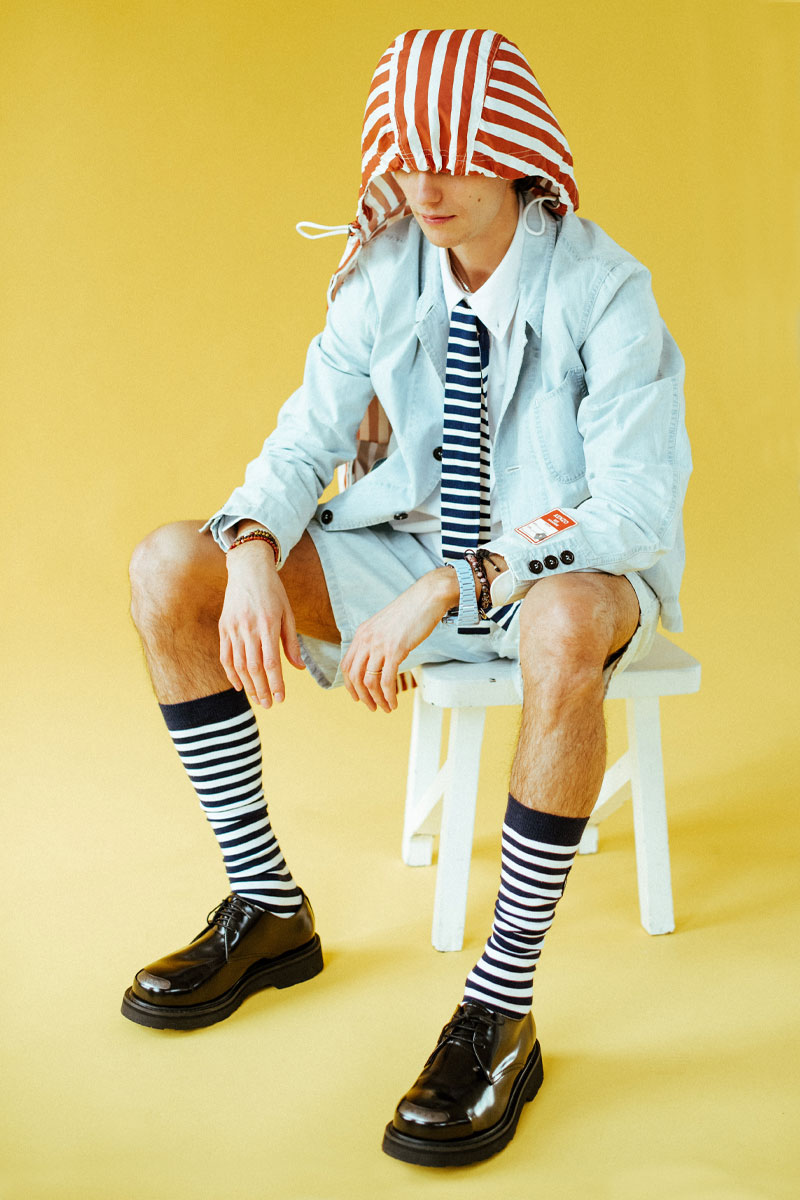
Photography: Anna Garbowska
Creative/Fashion Direction: Kevin Breen
Production Assistant: Emily Ragano
Fashion Assistant: Marilyn Jordan
Location: LOVE Studios NYC
Thanks for reading InsideHook.
Sign up for our daily newsletter to get more stories just like this.
